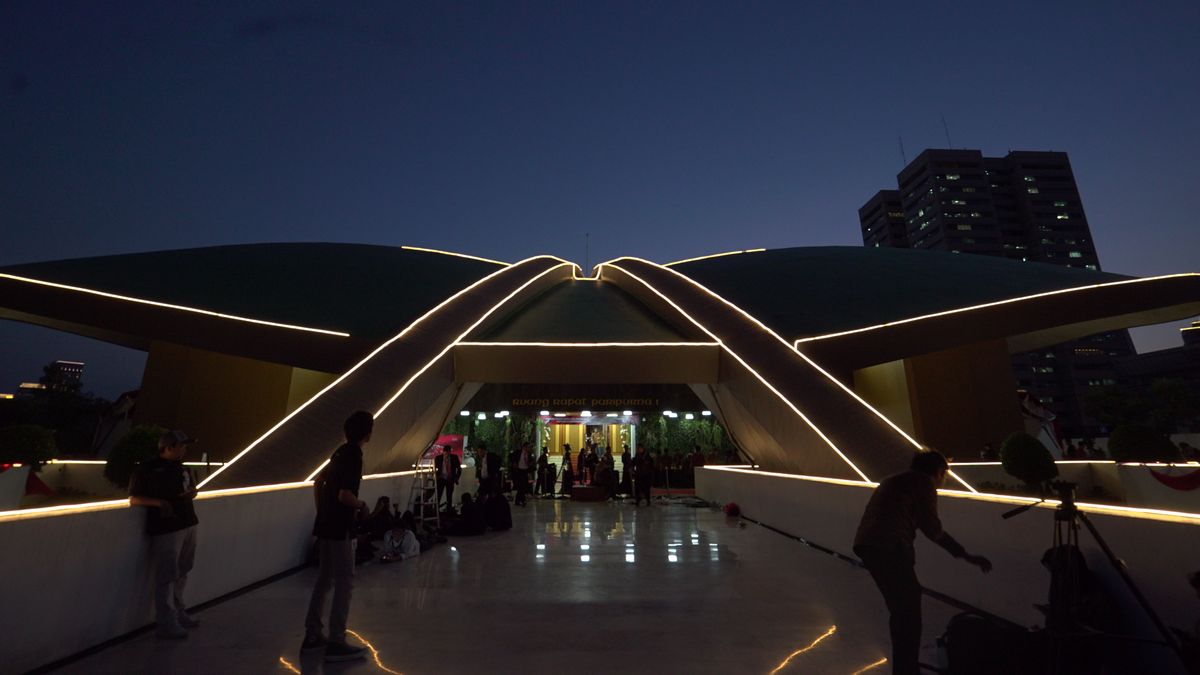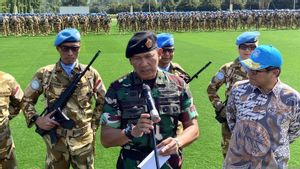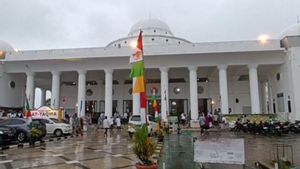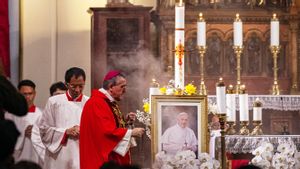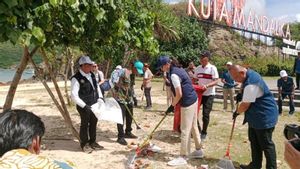JAKARTA - The government's efforts to resolve gross human rights violations through the formation of the Truth and Reconciliation Commission (KKR) have resulted in polemic. This is because there is a difference in opinion between the government and the National Commission on Human Rights which says that people want to resolve human rights cases through judicial or court channels.
Together with Kompas Research and Development, Komnas HAM conducted a survey on the resolution of past gross human rights violations. As a result of the survey, 99.5 percent of respondents wanted the TRC to be stopped. They prefer that violators of human rights are tried in court rather than through other or non-judicial means such as the TRC.
The survey was conducted using a multistage random sampling research method with 1,200 respondents spread across 34 provinces. The margin of error is around 2.8 percent and the survey took place from September to October 2019.
There were five cases of violations raised by Komnas HAM in the survey, namely the 1965 incident, the mysterious shooting of Peter 1982-1985, the kidnapping of activists in 1997-1998, the shooting of Trisakti-Semanggi 1998, and the May 1998 riots.
"Nearly 99.5 percent (want to resolve cases of human rights violations) through courts. 62.1 percent through national courts, 37.2 percent through international courts, 0.5 percent other ways. Another way is TRC, reconciliation," he said. Komnas HAM Commissioner Choirul Anam presents the results of his survey at his office, Jalan Latuharhari, Central Jakarta, Wednesday, December 4.

He hopes that the government can use this survey to solve cases of human rights violations. "Stop the KKR, because if this figure is 99.5 percent, it says it will be resolved through the courts, and what is even greater is the hope that it will be resolved in the national court, not in the international court," said Choirul.
The survey results also reveal that the public perceives that past human rights violations have not been resolved due to political factors and the inability of the president to formulate technical matters.
However, Choirul said that this obstacle did not only occur in Indonesia but also in other countries. So he hopes that the settlement of human rights cases in the past will be the commitment of the Jokowi-Ma'ruf Amin administration, especially now that Mahfud MD is the Coordinating Minister for Political, Legal and Security Affairs.
"We hope a little more, for example in the current government. Should be the command of the dynamics of political law and human rights at the national level, Mr. Mahfud MD, whom we southeast has no burden in the past, should be able to fix this, he should," he said.
Strived to enter the 2020 Prolegnas
Although according to a survey by Komnas HAM and Research and Development Kompas, 99.5 percent of the public have asked for cases of human rights violations to be resolved through the courts, but the steps taken by the Coordinating Minister for Political, Legal and Security Affairs to revive the TRC seem to be getting more intense.
Last Wednesday, November 4, Mahfud invited a number of figures such as Alissa Wahid, senior political observer of the Indonesian Institute of Sciences (LIPI) Siti Zuhro, staff of the President for legal affairs Dini Shanti Purwono, Director General of Human Rights of the Ministry of Law and Human Rights Mualimin Abdi, and several other parties to conduct a group discussion forum. (FGD) related to the TRC.
After the meeting, presidential staff for legal affairs Dini Shanti Purwono said the government would continue to look for formulations so that it would be easy to map out which ones were included in the realm of the TRC and the realm of the pro justitia.
In addition, the government has proposed the Truth and Reconciliation Commission Bill (RUU KKR) to be included in the National Legislation Program (Prolegnas). This politician from the Indonesian Solidarity Party (PSI) said that registering the TRC Bill was proof of President Jokowi's seriousness in solving human rights cases.
"The president himself is clear, today we will start FGD, then from the government we have included proposals for the bill in the National Legislation Program, in the government's proposal that the TRC Bill is one of the priority lists," said Dini at the Kemenkopolhukam Office. , Jalan Medan Merdeka Barat, Central Jakarta after carrying out the FGD.
The government, Dini said, would continue to strive to resolve cases of human rights violations as committed by President Jokowi. In the future, the government will also strive to make the KKR Bill a priority for discussion at the DPR. "Do not let it not be finished, so it is maximum until the end of next year," he said.
The Director General of Human Rights at the Ministry of Law and Human Rights, Mualimin Abdi, who was also present at the FGD, then emphasized that the weakness in Law number 27 of 2004 concerning the Truth and Reconciliation Commission (KKR) which was canceled by the Constitutional Court (MK) would not be included in the TRC Bill which the government was currently working on.
In line with Dini, Mualimin said that the government is currently mapping which cases of gross human rights violations that can be resolved through non-judicial channels with the TRC and which can be resolved through judicial channels with the courts.
"After discussing the KKR Law, if that happens then the government, represented by the Coordinating Minister for Political, Legal and Security Affairs, and there is also the Attorney General, will verify which ones cannot be brought to the judiciary. I see. judicial, "he said.
Previously, the KKR was regulated in Law (UU) Number 27 of 2004. However, in 2006, the Chief Justice of the Constitutional Court (MK) Jimly Asshidiqie canceled the law. This is because this law is deemed inconsistent, which can lead to legal uncertainty.
However, the Constitutional Court did not only cancel it, but actually requested that the new TRC Law which is in line with the 1945 Constitution and upholds the principles of humanitarian law and human rights law be re-formed.
Based on the dpr.go.id page, the KKR actually entered Prolegnas on February 2 2015. The legislation has even entered level II, which is waiting for the decision to become a law by a plenary meeting or the approval of the bill to become law. However, for no apparent reason, the KKR Bill (RUU) then just evaporated.
The English, Chinese, Japanese, Arabic, and French versions are automatically generated by the AI. So there may still be inaccuracies in translating, please always see Indonesian as our main language. (system supported by DigitalSiber.id)
